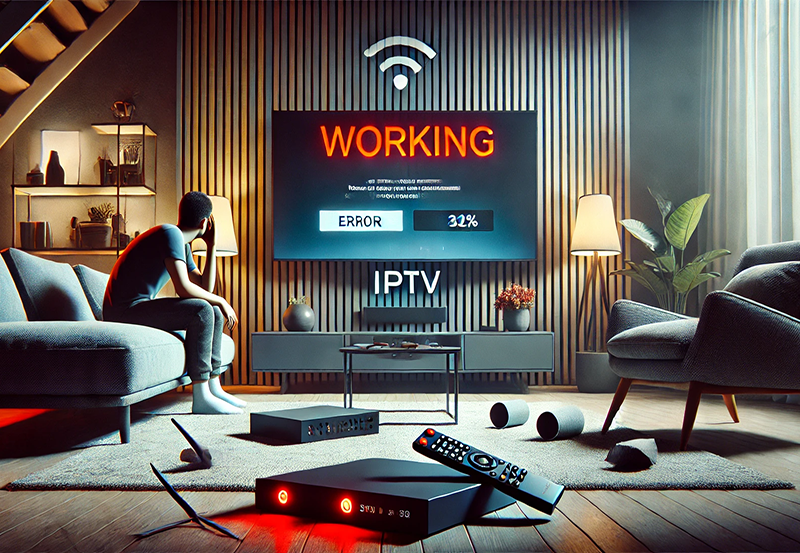Buffering is a common issue IPTV users encounter, disrupting the streaming experience and causing frustration. Understanding what causes buffering and knowing how to address it can greatly improve your IPTV performance. This article explores the main reasons behind IPTV buffering and provides practical solutions to enhance streaming quality.
Primary Causes of IPTV Buffering
- Internet Speed and Bandwidth: One of the most significant factors affecting IPTV buffering is internet speed. IPTV streaming requires stable and fast internet to deliver smooth video content. If your bandwidth is limited or shared among multiple devices, buffering may occur as your network struggles to handle the demand.
- Network Congestion: Internet traffic spikes during peak hours, particularly in the evenings or on weekends, when many people are streaming content simultaneously. This congestion can reduce streaming quality and increase buffering, especially if you are on a shared network or your ISP throttles your connection under heavy load.
- Device Performance: The device you use for IPTV can impact streaming quality. Older or low-performance devices may struggle to process high-definition or 4K streams efficiently, leading to buffering. Insufficient device memory, outdated firmware, or unsupported video formats can exacerbate the issue.
- Server Overload: IPTV providers stream content through dedicated servers, which can become overloaded if too many users access the same channels at once. Overloaded servers struggle to meet demand, resulting in buffering issues. Server reliability and capacity play a major role in your IPTV experience.
- \Router Limitations and Wi-Fi Interference: Routers can also contribute to buffering, especially if you use Wi-Fi. Distance from the router, physical obstructions, and interference from other wireless devices weaken the connection, reducing streaming quality. Older routers or those not optimized for IPTV streaming may lack the capacity to support high-definition streaming. want buy 6 months IPTV subscription
Effective Solutions for Reducing IPTV Buffering
- Upgrade Your Internet Plan: Check your internet speed to ensure it meets the requirements for IPTV streaming. A minimum of 25 Mbps is generally recommended for HD content, while 50 Mbps or higher is preferable for 4K. Upgrading to a higher-speed plan may help alleviate buffering caused by bandwidth limitations.
- Use Ethernet Instead of Wi-Fi: Wired connections provide a more stable and faster connection than Wi-Fi, reducing the likelihood of buffering. Connect your IPTV device directly to your router via Ethernet to minimize signal interference and ensure consistent streaming quality.
- Optimize Router Placement and Settings: Position your router in a central location free from physical obstructions, and use a modern, IPTV-compatible router for better performance. You may also switch your Wi-Fi channel to reduce interference from other devices. Consider enabling Quality of Service (QoS) settings to prioritize IPTV traffic on your network.
- Update Your Device and Apps: Ensure your IPTV device and apps are up to date, as outdated software can affect performance and cause buffering. Regular updates often include performance optimizations, bug fixes, and improved compatibility, all of which can enhance streaming quality.
- Choose a Reliable IPTV Provider: Opt for IPTV services with a strong reputation for server reliability. Providers that invest in robust, scalable server infrastructure typically experience fewer buffering issues. Reading reviews and testing free trials can help you assess a provider’s performance before committing to a subscription.
- Monitor Peak Usage Times: Buffering tends to be worse during high-traffic periods. If possible, try streaming during off-peak hours to reduce the likelihood of network congestion. While this may not always be feasible, timing your streaming during less congested periods can enhance viewing quality.
- Use a VPN for Throttling Issues: Some ISPs throttle bandwidth for streaming activities. A VPN can help bypass these restrictions by encrypting your internet traffic, allowing for a smoother IPTV experience. Choose a VPN with high-speed servers optimized for streaming to minimize any potential impact on speed.
Final Thoughts
Buffering can disrupt the IPTV experience, but by understanding its causes and implementing these solutions, you can significantly enhance streaming quality. Upgrading your internet, optimizing your network setup, and selecting a reliable IPTV provider are key steps in achieving a seamless viewing experience. A little proactive management can transform your IPTV setup into a smooth and enjoyable entertainment source.
what is roku? Types of Roku Devices



